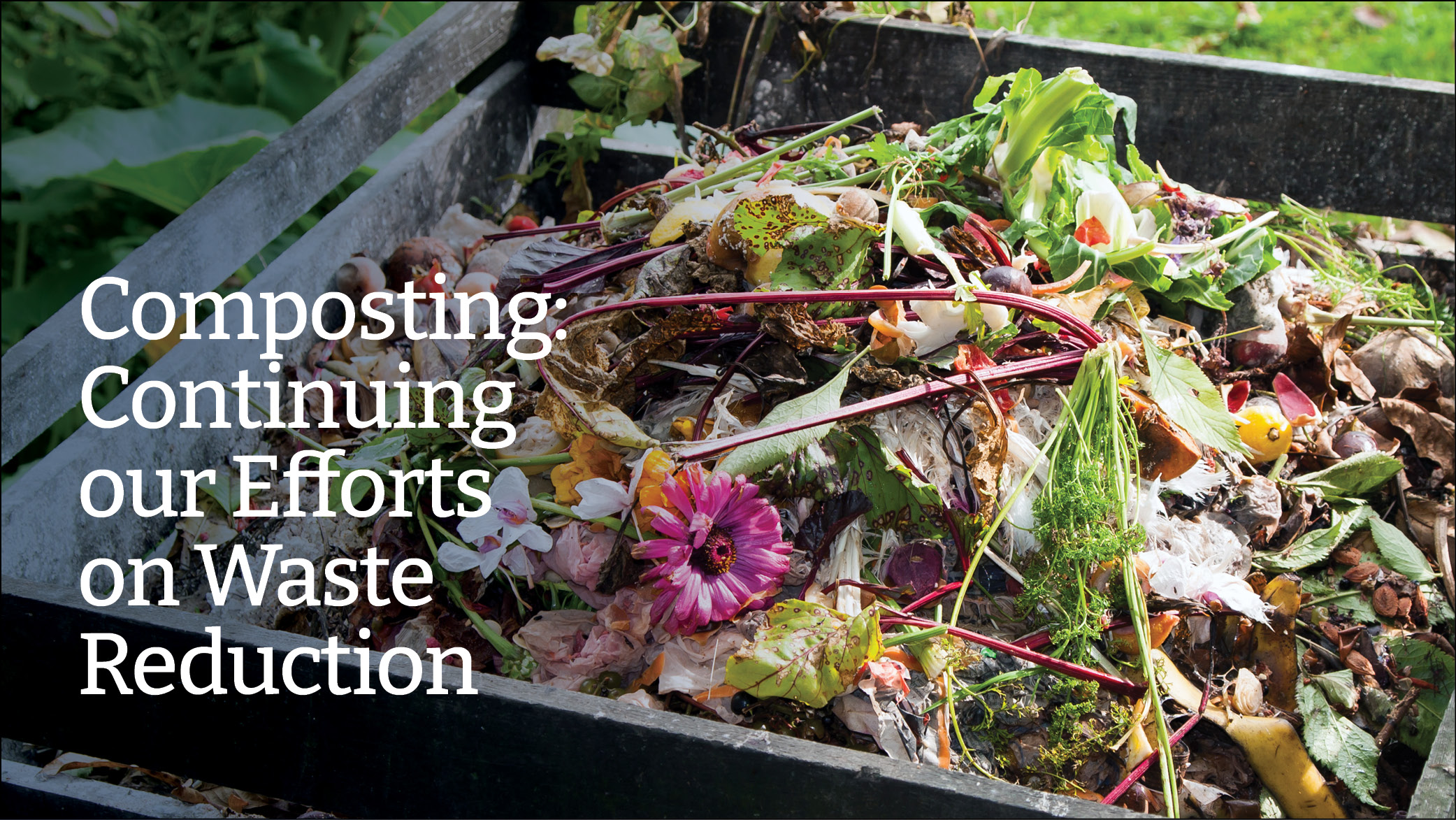Through continuous, innovative sustainability initiatives, Rochester Regional Health strives to improve the healthcare experience while ensuring a healthy environment, reducing waste, eliminating toxins, and creating a more sustainable community.
Among many sustainability efforts is composting—an alternative process for collecting and storing food waste in a more meaningful way. Two of our major locations currently collect organic food waste: Rochester General Hospital and St. Mary’s Campus. Riedman Administrative Campus also previously participated but was is currently on hold until their kitchen re-opens.
Across these three locations, Rochester Regional Health has composted over 125 tons of waste since 2018.
“Through composting, we can work to reduce our waste while creating opportunity for a healthier, more sustainable way of growing food,” said Michael Waller, Director of Sustainability at Rochester Regional Health.
What is Composting?
Composting is the recycling of organic matter, such as food waste and leaves, into fertilizer. The process is usually sped up by providing an ideal environment for bacteria, fungi, worms, or other decomposing organisms to do their work.
In addition to being good for the environment, composting:
- Adds nutrients to soil
- Provides valuable organisms to the soil that improve it for plant growth
- Recycles kitchen and yard waste
- Reduces landfill waste
- Costs no money!
How much faster do compostable materials decompose?
While the rate of decomposition largely depends on the environment and type of material, it can be said that most plastic utensils and cups take between 200 and 500 years to decompose in a landfill.
Compostable products—when put in a commercial composting environment—take less than 6 months to completely break down.
The rapid decomposition depends on the dedication of our teams to continue to ensure compostable products are properly disposed of.
“If compostable products end up in the landfill, they can still take decades to break down. That’s why our teams will work to ensure all compostable materials are properly taken care of,” said Waller.
Composting at home
It’s proven that composting is a great way to recycle food waste in a valuable way—but how do you get started at home? The United States Environmental Protection Agency provides a go-to-guide on how to start and keep up on an effective compost pile.
Emissions savings
Why else is composting so healthy for the environment? On top of reducing waste, composting reduces emissions of harmful greenhouse gas.
In the past 3 years, we’ve saved 37.7 tons of carbon dioxide from going into the atmosphere, just from composting alone. To put it in perspective, that’s about the same amount of CO2 that 24 households release in one year.
In further efforts to reduce waste and emissions, all organic waste collected at Rochester General Hospital is sent to an anaerobic digester where it is converted into electricity. Since 2018, 10 tons of waste has made its way to the digester that has been used to generate at least 500 kWh (kilowatt-hours) of energy—enough to charge a phone for 1,000 hours or even brew 6,000 pots of coffee!


